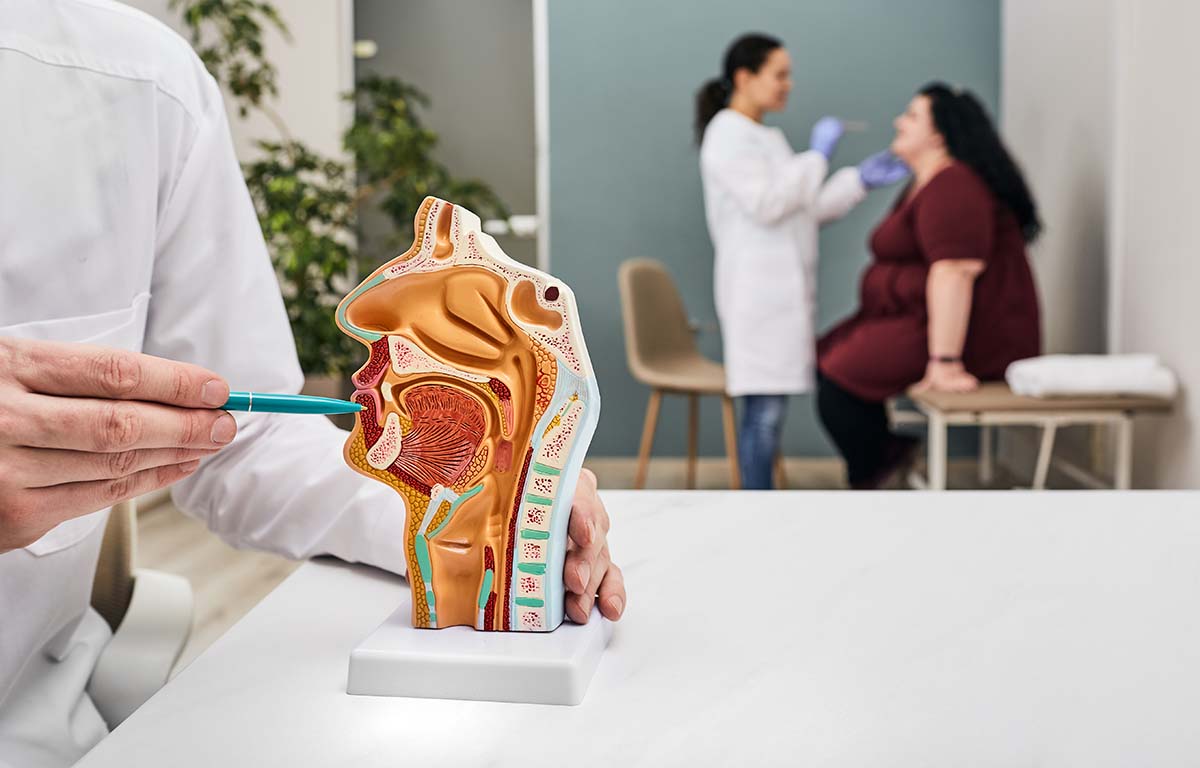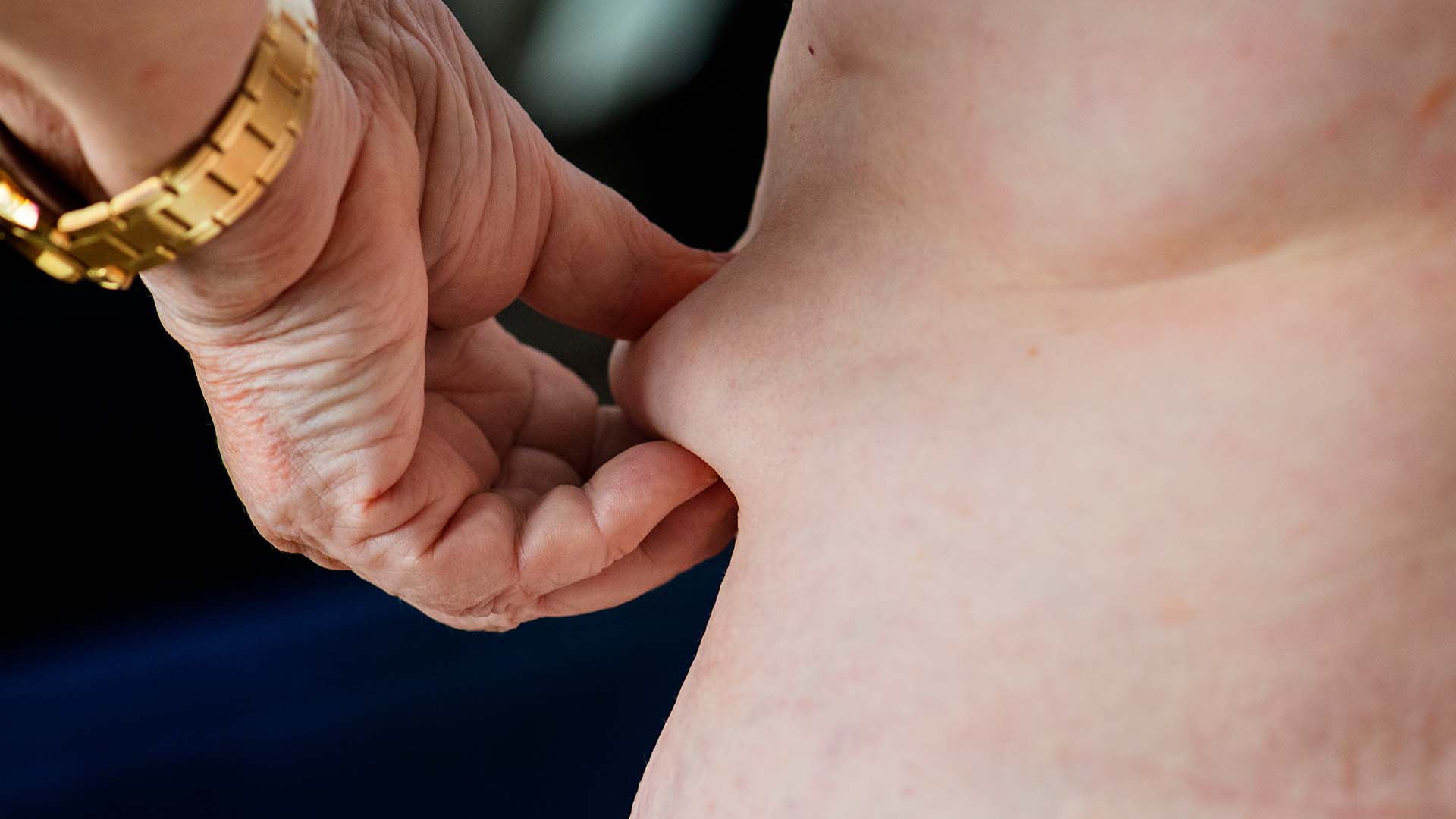Oral Health and Overweight: What’s the Connection?
The relationship between oral health and excess weight is an important but often neglected topic. Although at first glance they may seem like separate areas of health, obesity and oral problems are interconnected in a number of ways. In this article, we’ll explore how excess weight can affect your mouth and, conversely, how oral problems can influence body weight.
What does obesity do to your oral health?
Being overweight is associated with a number of complications for general health, and oral health is no exception. Several studies have shown that people with obesity have an increased risk of developing dental problems such as cavities, gum disease and even tooth loss. A study carried out by the American Academy of Periodontology revealed that individuals with a high BMI have a higher prevalence of periodontal disease due to factors such as chronic inflammation and difficulties in properly cleaning teeth due to obesity.
Chronic inflammation and its impact on the gums
Obesity is often followed by chronic low-grade inflammation, which can directly affect the gums. Inflamed gum tissue is more likely to be affected by the bacteria that cause gingivitis and periodontitis. In addition, excess body fat is associated with excessive production of inflammatory substances, which contribute to the progression of gum disease. A 2017 study published in the Journal of Periodontology reported that obese individuals are up to three times more likely to develop severe gum disease than those of a healthy weight.
The effect of diet on oral health
Diet plays an important role in both obesity and oral health. Diets rich in sugar and refined carbohydrates, typical of those suffering from obesity, are also one of the main factors causing tooth decay. Sugar turns into acid in the mouth, which damages tooth enamel and promotes the growth of bacteria that cause cavities. Studies indicate that obese people, who frequently consume foods rich in sugar and fats, are more likely to develop cavities and damaged teeth than those who follow a more balanced and healthy diet.

Sleep apnea and oral health
Another important point is the relationship between obesity and sleep apnea, a common disorder in overweight people. Sleep apnea, characterised by pauses in breathing during sleep, is often associated with bruxism (teeth grinding). Bruxism can lead to serious dental problems such as excessive enamel wear, fractured teeth and jaw pain. According to the American Academy of Sleep Medicine, around 60 per cent of people with sleep apnea also have bruxism, which makes dental care even more important for patients who are overweight or obese.
What can you do to improve your oral health if you’re overweight?
Although the link between obesity and oral problems is worrying, there are several measures you can take to improve the health of your mouth, regardless of your weight:
Proper brushing: Brush your teeth at least twice a day with a fluoridated toothpaste and floss regularly to prevent plaque build-up.
Balanced diet: Reduce your intake of sugar and processed foods, opt for a balanced diet rich in fruit, vegetables and lean proteins.
Regular visits to the dentist: Maintain regular check-ups with the dentist to prevent gum disease and tooth decay.
Weight control: Losing weight gradually and healthily can help reduce inflammation in the body, including in the gums, and improve oral health.
Conclusion
The link between obesity and oral problems is clear: being overweight increases the risk of gum disease, tooth decay and even bruxism. However, with good oral hygiene, a balanced diet and proper medical care, many of these problems can be prevented. If you are overweight, it is essential that your oral health is monitored, as your mouth also reflects the state of your body. If you have any questions or want to know more about how to keep your mouth healthy, book an appointment at Clinicalvor now.
Scientific references
Exploring an Association between Body Mass Index and Oral Health in Brazilian Elderly Individuals
Obesity and Periodontal Disease
Class 3 Obesity and Oral Health in Adults: A Scoping Review of the Challenges for Oral Healthcare Services
Obesity and Oral Health: Is there a Link? An Observational Study
Obesity and Periodontal Disease: A Review



